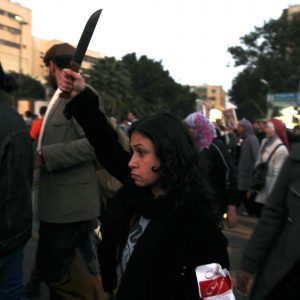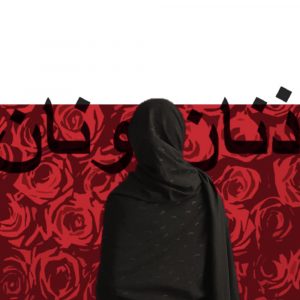Gender and caste violence persist in India
There is an unprecedented rise in sexual violence against women from lower castes under Narendra Modi’s right-wing government, which has empowered the dominant upper caste groups.
Author:
19 October 2020

India’s rape crisis is showing no signs of abating. The problem appears to be getting worse despite growing public outrage and repeated calls for action.
The country is yet again gripped by a wave of despair and repugnance following the death of a 19-year-old woman from a Dalit community (formerly untouchables), who was raped and bludgeoned by four men from an upper caste. The assault was so gruesome that it left her paralysed with a broken spine. She eventually succumbed to her injuries.
The incident has thrown a fresh spotlight on India’s caste-based sexual violence, which is used as a tool of political repression, to intimidate the marginalised and especially as a revenge against lower-caste communities. The woman, who belonged to the Dalit Valmiki caste, was attacked while she was outside cutting grass on 14 September in the Hathras district of North India’s Uttar Pradesh state. The suspects belonged to an upper Thakur caste and reportedly lived next door to her family.
Related article:
She was found by her family naked, bleeding, her tongue split and her spine broken. She was admitted to the Jawaharlal Nehru Medical College of Aligarh Muslim University in Uttar Pradesh, and later shifted to Delhi’s Safdarjung Hospital, where she died on 29 September. Soon after, the Uttar Pradesh police hurriedly cremated her body against the wishes of her family, who were barricaded inside their home.
The victim’s family said that despite their appeals to the state authorities for permission to take the body home for last rites, the police went ahead with the cremation in the dead of the night. The family also alleged that they are being pressured by the district administration and police to refute that their daughter was raped, and that they were confined to their house and not permitted to talk to the media. The family has also been threatened by an organisation linked to the upper caste to which the men belong for allegedly making false claims of rape against the accused.
Stifling grieving voices
Many rights activists and political leaders have deemed the police’s actions as criminal destruction of evidence. The allegations have prompted the country’s National Commission for Women to seek an explanation from the Uttar Pradesh police as to why the victim was cremated in the middle of the night without her family’s consent. The Allahabad high court also took a suo motu cognisance of the incident, saying the police acted on their own cognisance, with the judges pointing to case law that mandates that the right to dignity and fair treatment is available to all in life and death.
In what appears to be a clear attempt by the Uttar Pradesh government to shield the guilty, the state’s additional director general of police claimed that the cause of death was injury to the spinal cord, adding that no rape had occurred as no sperm was allegedly found on the victim. The police further accused the woman of lying, refused to register a rape complaint and delayed taking the victim to hospital for treatment. The state authorities also attempted to intimidate the victim’s family into backtracking on their statement that the victim was raped, and prevent media and political leaders from entering the victim’s village.
Related article:
Politicians from the ruling Bharatiya Janata Party (BJP) started circulating videos on social media to suggest that the woman was not raped. These videos were apparently made by unidentified people before the victim was taken to hospital. But contrary to the claims of the state police and BJP politicians, the medico-legal examination report prepared by the hospital, where the victim was first admitted, established that the woman was sexually assaulted.
The Uttar Pradesh government, which is run by Prime Minister Narendra Modi’s right-wing party, stopped leaders from India’s principal opposition parties from meeting the family of the victim. Congress leader Rahul Gandhi and four other leaders, including his sister Priyanka Gandhi Vadra, were stopped and briefly taken into custody while travelling to the district, triggering a scuffle with the cops. The leaders subsequently met the family two days later on their second attempt, following which they hit out at the government of Uttar Pradesh chief minister Yogi Adityanath over the police’s highhandedness and for stifling the family’s voice.
Even though the state government formed a special investigation team to look into the incident, the country’s premier Central Investigation Bureau is now investigating the case. The victim’s family, however, is urging that a judicial investigation be conducted in this case.
Politics over rape
The opposition parties have sought Adityanath’s resignation and assured the harshest punishment for the culprits responsible for this incident. Despite such assurances, a rally was held at the house of BJP legislator Rajveer Pahalwan in support of the accused men. Right-wing groups such as the Bajrang Dal, Karni Sena and Rashtriya Swayamsevak Sangh (RSS) attended. The latter is the ideological mentor of the BJP and some of its members belong to caste-based organisations like Rashtriya Savarna Sangathan and Kshatriya Mahasabha.
Another legislator from the BJP, Surendra Singh, suggested that such rapes could be averted if women are raised with sanskar (cultural values) and not with shashan (governance) or talwar (sword). “The government’s job is to protect the people, but it is also the responsibility of parents to teach children polite behaviour and manners,” Singh said. Rahul Gandhi deplored these remarks and blamed the “filthy” male chauvinist mentality of the RSS for such distasteful comments.
Under attack from the opposition parties and rights groups, the Adityanath cautioned BJP workers about “conspiracies” against his government and asked them to “expose those who want to incite caste and communal riots” in the state. “These people want to gain political mileage in the backdrop of riots, and that is why they are hatching new conspiracies every day,” he said. Following his remarks, the Uttar Pradesh police filed a case against unidentified people under stringent sections of the Indian Penal Code, including sedition, claiming they have uncovered an “international plot” to instigate riots along caste lines and defame the Adityanath’s government over the Hathras rape case.
Caste dimension of gender violence
India’s highly stratified social structure has made sexual aggression appear more acceptable when the victim is lower caste or from other minority groups. The majority of gang rapes have caste aggression behind them, with Dalit or tribal women often the victims and perpetrated by men from dominant upper castes, who use sexual violence as a tool to assert power and reinforce existing caste and gender hierarchies.
The norms and functions of caste patriarchies are structurally different for women of higher and lower castes. While there is tight control over the sexuality of upper-caste women along the lines of purity and “pollution” to maintain marriage within one’s own caste, lower-caste women have been made sexually available to upper-caste men through ritual practices to legitimise sexual exploitation within the caste system.
Related article:
With all public institutions, especially the political, law enforcement and judicial – effectively dominated by people from upper-caste groups – assaults on lower-caste women were rarely investigated or the guilty parties prosecuted. In recent years, using rape as a tool to oppress lower castes has been on the rise, especially in Uttar Pradesh. Statistics show that each day in India at least four Dalit women are raped.
The role of state governments and the police has come under strong criticism over the handling of this case and pressuring the family to backtrack on the incident. In an open letter to the Uttar Pradesh chief minister, more than 90 former Indian civil servants have demanded that a SC/ST Prevention of Atrocities case be filed against state police and officials, whose alleged negligence has affected the investigation of the case.
“The Hathras district administration feels it can flout human sentiments at will, apart from rapidly disposing of evidence in cases of offences against the body. All those complicit in these violations of law and tradition must be punished,” write the signatories. “But, ultimately, all responsibility rests with you as the chief executive of the state. Your actions over the past three and a half years give us little reason to believe that your actions are motivated by respect for the rule of law.”
More than 30 feminist groups, Dalit organisations based in the United Kingdom and many diaspora organisations, along with British Labour Party members of Parliament, have written to UN High Commissioner for Human Rights Michelle Bachelet asking her to urge the Indian government to dismiss Adityanath’s government. They have also sought an international enquiry into cases of rape and crimes against women, particularly from Dalit communities, since Adityanath became the chief minister, saying that these cases were part of a “systematic attack” on women and oppressed castes.
“While attacks on Dalits and women have escalated vastly all over India since 2014, when the Hindu-supremacist Modi regime with its entrenched casteist and misogynist ideology came to power, the Adityanath government in Uttar Pradesh has seen by far the largest number of attacks and atrocities,” the letter reads.
Related article:
Uttar Pradesh recorded 59 853 cases of crimes against women in 2019, a major share of the 404 861 such crimes recorded across the country, according to National Crime Record Bureau data. Uttar Pradesh also saw 26% of all atrocities against Dalits. The western state of Rajasthan reported almost 6 000 rape cases in 2019, followed by Uttar Pradesh with 3 065 cases. These figures are just the tip of the iceberg as only a fraction of women who are raped file a complaint. Experts say that a woman is raped in India every 16 minutes.
A grim reality
Reacting to the Hathras incident and other cases of sexual assault on women in the country, the United Nations in India said it was “profoundly saddened and concerned” at continuing cases of sexual violence in India.
“The recent cases in Hathras and Balarampur are another reminder that despite the impressive progress made on a number of social indicators, women and girls from disadvantaged social groups face additional vulnerabilities and are at greater risk of gender-based violence,” the UN said.
It further noted that authorities must ensure that the perpetrators are brought to justice speedily, and that families be empowered to seek timely justice, social support, counselling, healthcare and rehabilitation.
Related article:
Acclaimed writer and rights activist Arundati Roy remarked that the Uttar Pradesh police proclaiming that the girl was not raped, just a day after the cremation, underscores the beginning of the standard operating procedure in which the caste angle is quickly excised from caste atrocities. “Courts, hospital records and the mainstream media can all be expected to cooperate in this process of gradually turning a hate-fuelled caste atrocity into just another unfortunate but ordinary crime,” she said. “In other words, absolving our society, letting our culture and social practices off the hook.”
Echoing Roy’s words, Aditi Murti accentuates that recognising the victim’s caste identity is critical to recognising her rape as a caste-linked crime, and that the incident shines a spotlight on India’s society, which repeatedly terrorises individuals deemed lower caste with violence, rape and murder, while its justice system often looks the other way.
“Ignoring the Hathras victim’s Dalit identity is both erasing one of the most plausible potential motives for the crime and turning a blind eye to the impenetrable hold caste-centric patriarchy exerts over Indian society. The intersectionality of feminism demands that we look deeper into the root causes and contexts behind violent crimes perpetrated against marginalised women,” Murti said.





